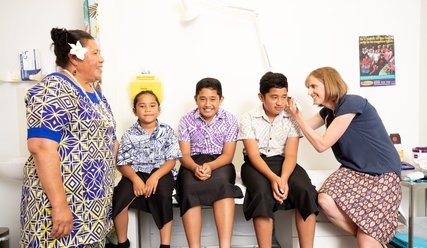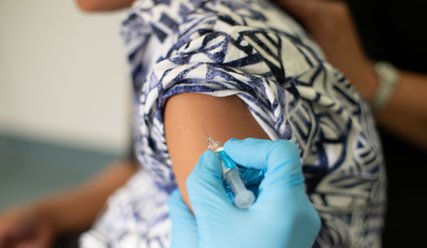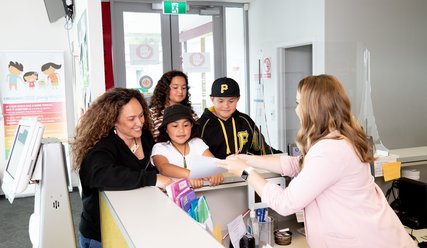A vision of Māori equity for 2040
Dr Rāwiri Jansen’s (pictured central) journey to being awarded the Maarire Goodall award honouring his long service and commitment to Māori health has been an interesting one.
Characterised by passion and a sense of responsibility to advocate change that upholds the Treaty of Waitangi, by delivering equity for all those who live in Aotearoa, his life so far has seen him as an activist, a teacher and a doctor.
It is even more interesting that becoming a doctor is last on the list, when he knew from an early age that medicine was what he wanted to do.
“I had rheumatic fever when I was a child that meant lots of antibiotics and injections, and far from putting me off, that exposure gave me my ambition to be a doctor from the age of about nine,” he remembers.
He enrolled at the University of Otago’s medical school but dropped out to become an activist, campaigning on issues such as Māori land, Māori language, a nuclear-free Pacific and the 1981 Springbok Tour.
“At that time these important political and social issues really resonated with this ‘pinko leftie’ with communist leanings,” he says. “So I went to play my part.”
He then became a primary school teacher, a role he enjoyed for five years, until the passing of time made him realise he had just one last shot at becoming a doctor.
“Med schools could refuse to take you based on your age, and as I was approaching 35 I thought that if I wanted to be a doctor it was now or never,” he says. “I called Otago to see if I could return but was informed that, as I had been named in the Senate, I was no longer welcome. Luckily, I was able to attend Auckland University and completed my medical studies there.””
He then served exactly the required 365 days as a house officer at Middlemore Hospital before becoming a GP, firstly at Ngāti Whātua Orākei Community Health Services, then serving the Tainui iwi provider, before buying a couple of high-needs practices in Auckland.
“I love what I do. It’s not only the honour of being able to help in times of need, but also the privilege of sharing the milestones we all have in our lives from the birth of a child to the final chapter with your patients,” he says.
But his activist heart has not left him, and he is a fierce advocate for change in the provision of health care services after what he describes as catastrophic and repeated failure from all levels to respond to the needs of Māori.
“We have a health care system that does a fantastic job for a big chunk of society and a totally inadequate one for the most vulnerable, of which a high proportion are Māori,” he says. “In the 90s, Māori health providers could see what was needed and were responding, but then in the mid-2000s, these providers suffered persistent and relentless attacks. It’s shameful, it really is.”
He disabuses the notion that change takes time and states that there are things that can be done to redress the imbalance in equity that exists.
“In 20 years, we will be celebrating 200 years of the Treaty of Waitangi, along with the 21st birthdays of 18,600 Māori.” he says. “We can describe what equity looks like for them in 2040 – in terms of income, in terms of employment and in terms of education. We know what equitable outcomes will be in health, in justice and corrections. And we know how that will be measured. So what do we need to do now?
“We need to go back a step – to secondary schools, where we can see what needs to be done to achieve equity in national standards. But that then needs a step back again – to primary education, and again to the basics for any family: a warm, dry, safe home, free from violence, free from abuse, effective and supportive health and dental services.”
“And we need to recognise today that those young people are, in fact, newborns and pregnancies right now. So what can be done now to give equity to their mothers?
“We need get busy on these things, starting now, and we can celebrate in 2040 together, equitably, as a nation.”
But this vision, Equity2040, is not, as he puts it ‘the end-game’. There is also Wai2499, which challenges us to imagine what a Treaty-compliant health system looks like. Dr Rāwiri Jansen’s journey is far from over.


